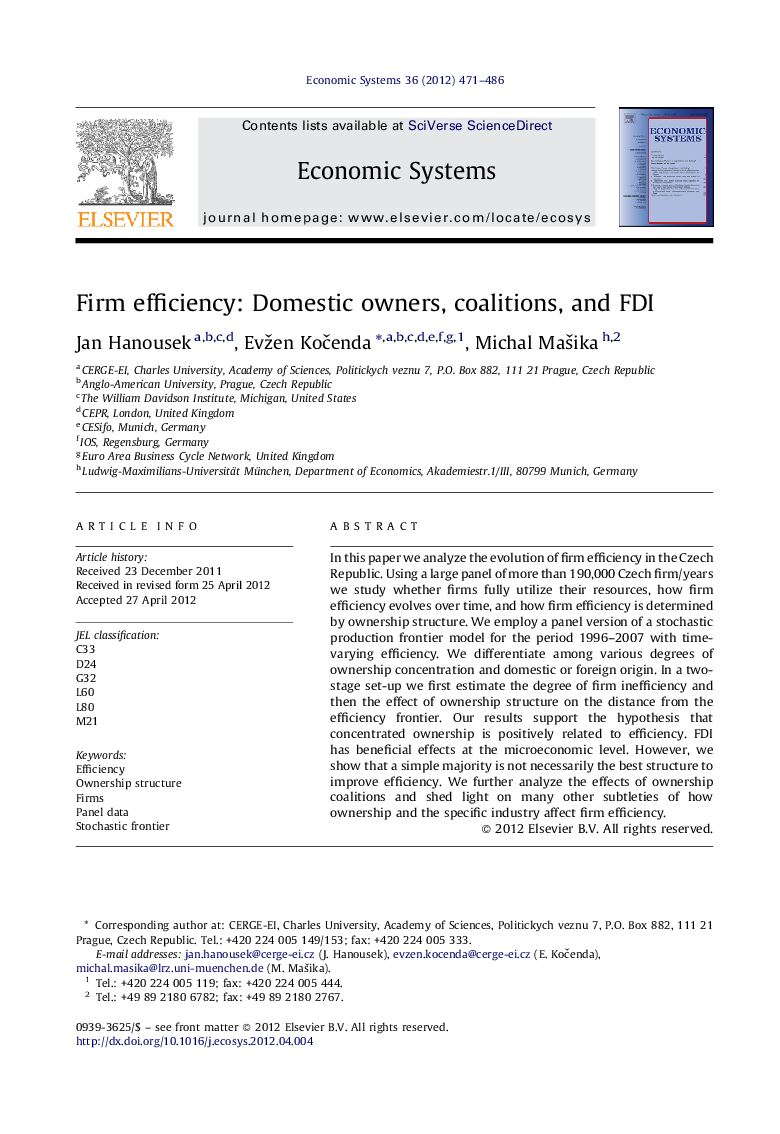| Article ID | Journal | Published Year | Pages | File Type |
|---|---|---|---|---|
| 5056376 | Economic Systems | 2012 | 16 Pages |
In this paper we analyze the evolution of firm efficiency in the Czech Republic. Using a large panel of more than 190,000 Czech firm/years we study whether firms fully utilize their resources, how firm efficiency evolves over time, and how firm efficiency is determined by ownership structure. We employ a panel version of a stochastic production frontier model for the period 1996-2007 with time-varying efficiency. We differentiate among various degrees of ownership concentration and domestic or foreign origin. In a two-stage set-up we first estimate the degree of firm inefficiency and then the effect of ownership structure on the distance from the efficiency frontier. Our results support the hypothesis that concentrated ownership is positively related to efficiency. FDI has beneficial effects at the microeconomic level. However, we show that a simple majority is not necessarily the best structure to improve efficiency. We further analyze the effects of ownership coalitions and shed light on many other subtleties of how ownership and the specific industry affect firm efficiency.
⺠We analyze the evolution and determinants of efficiency in Czech firms during 1998-2007. ⺠We employ a panel version of a stochastic production frontier model with time-invariant efficiency. ⺠Evidence shows improving efficiency among firms with positive effects of the highly concentrated and FDI ownership. ⺠Minority domestic owners are conducive to firm efficiency at a slightly higher level than a pure majority. ⺠Coalitions of domestic minority owners seem to cooperate to improve efficiency while foreigners do not.
